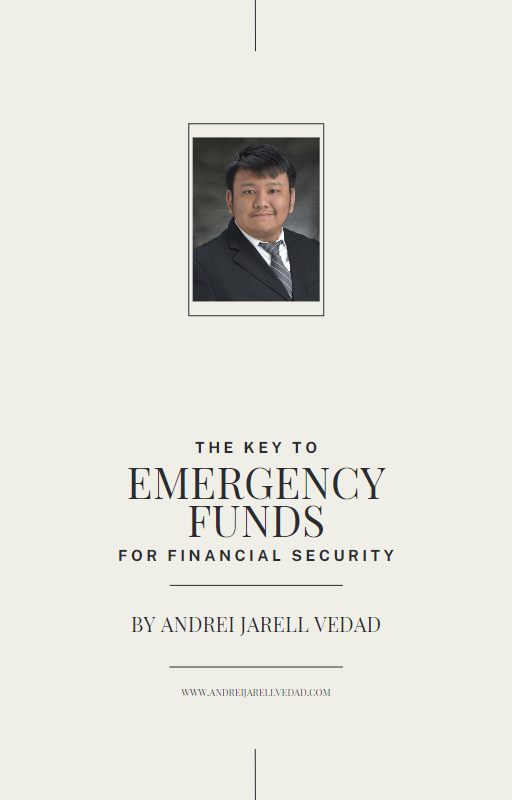
Table of Contents
Introduction
What is Mental Health?
Mental health refers to a person’s overall emotional, psychological, and social well-being. It affects how we think, feel, and behave in our daily lives. Mental health is crucial to our overall health and well-being, just like physical health.
The importance of discussing mental health in the Philippines is a topic that is often overlooked and stigmatized. There is a lack of awareness and understanding of mental health, which leads to many people suffering in silence. Discussing mental health is important to break the stigma and encourage people to seek help.
The common mental health challenges in the Philippines Filipinos face various mental health challenges, including depression, anxiety, stress, and trauma. These challenges can be caused by various factors, such as poverty, social isolation, and the impact of natural disasters. It is essential to understand these challenges and seek appropriate support to address them.
If you or someone you know is struggling with mental health challenges, know that you are not alone, and there is help available. Let’s start the conversation on mental health and work together towards a healthier and happier Philippines.
Common Mental Health Challenges
Depression
Depression is a prevalent mental health challenge that affects millions of Filipinos every year. It is a mood disorder that can cause persistent feelings of sadness, hopelessness, and loss of interest in daily activities. Some of the common symptoms of depression include lack of energy, difficulty concentrating, changes in appetite or sleep patterns, and thoughts of self-harm or suicide.
Many factors can contribute to depression among Filipinos, including poverty, social isolation, and a lack of access to mental health services. The COVID-19 pandemic has also contributed to increased rates of depression and anxiety in the country.
Unfortunately, stigma surrounding mental illness remains a significant barrier to seeking help for depression in the Philippines. Many people still believe that depression is a sign of weakness, a personal failing, or due to lack of faith, which can prevent those affected from seeking the help they need.
It’s essential to raise awareness about depression and other mental health challenges in the Philippines to break down the stigma and encourage more people to seek support.
Personally, I’m suffering from chronic depression since I was a child. I was battling depression alone all my life. I never had professional help until I’m in college. It is never too late to seek help. You’re not alone in this fight. Don’t do what I did by fighting it alone.
Andrei Jarell Vedad
Anxiety
Anxiety is a normal and often necessary emotion that helps individuals react to stress. However, when anxiety becomes excessive and persistent, it can become a debilitating mental health condition.
Anxiety is characterized by feelings of worry, fear, and apprehension about future events or situations. Individuals with anxiety may experience physical symptoms such as trembling, sweating, and rapid heartbeat. Other symptoms include irritability, restlessness, difficulty concentrating, and trouble sleeping.
Anxiety among Filipinos can be caused by various factors such as financial problems, work-related stress, health concerns, and relationship issues. In addition, natural disasters and other traumatic events can trigger anxiety among individuals who have experienced them.
Like depression, anxiety is also stigmatized in the Philippines, which can prevent individuals from seeking help. People with anxiety are often seen as weak or attention-seeking, which can discourage them from talking about their struggles with others.
Despite the stigma, there are resources available for those struggling with anxiety in the Philippines. The National Center for Mental Health offers free consultations and treatment for mental health conditions, including anxiety. Additionally, some private hospitals and clinics also offer mental health services. Online therapy and counseling services are also becoming increasingly popular and accessible.
Bipolar Disorder
Bipolar disorder, also known as manic-depressive illness, is a mental health condition characterized by extreme mood swings that range from highs (mania or hypomania) to lows (depression).
The symptoms of bipolar disorder vary from person to person and depend on the type of episode they are experiencing. Manic episodes are characterized by an elevated, euphoric or irritable mood, racing thoughts, grandiosity, decreased need for sleep, and excessive energy or activity. Depressive episodes, on the other hand, are characterized by feelings of sadness, hopelessness, guilt, fatigue, sleep disturbance, and decreased interest or pleasure in activities.
There is no single cause of bipolar disorder, but genetics, brain structure and function, and environmental factors may play a role. In the Philippines, stress, poverty, and trauma are some of the environmental factors that may trigger bipolar disorder.
Stigma and discrimination against people with bipolar disorder and other mental illnesses remain prevalent in the Philippines. This often leads to individuals with bipolar disorder being isolated and discriminated against, making it difficult for them to seek help and support.
Fortunately, there are resources available for those struggling with bipolar disorder in the Philippines. The Philippine Mental Health Association (PMHA) offers counseling and therapy services, while the National Center for Mental Health (NCMH) provides inpatient and outpatient care, medication management, and psychotherapy. It is essential to seek professional help and support if you suspect that you or someone you know may be experiencing bipolar disorder.
Schizophrenia
Schizophrenia is a severe mental disorder that affects an individual’s ability to think, feel, and behave clearly. Its symptoms include hallucinations, delusions, and disordered thinking. The causes of schizophrenia are not fully understood, but genetics, environment, and brain chemistry play a role.
Unfortunately, there is a significant stigma surrounding schizophrenia in the Philippines. Many individuals with the disorder are often labeled as “crazy” or “dangerous,” leading to discrimination and isolation. As a result, people with schizophrenia are less likely to seek treatment and support.
However, there are available resources in the Philippines for individuals with schizophrenia, such as mental health clinics and hospitals. There are also support groups and organizations that provide education and advocacy to reduce the stigma surrounding the disorder. It’s essential to understand that schizophrenia is a treatable condition, and seeking help is the first step towards recovery.
Post-Traumatic Stress Disorder (PTSD)
Post-traumatic stress disorder or PTSD is a mental health condition that can develop after a traumatic event. Symptoms of PTSD can include flashbacks, nightmares, avoidance, and hyperarousal. In the Philippines, many individuals may be at risk of developing PTSD due to exposure to natural disasters, violence, and other traumatic events.
Stigma surrounding mental illness in the Philippines can make it difficult for individuals with PTSD to seek help. However, it is important to address the condition as early as possible to prevent it from becoming chronic. Fortunately, there are resources available in the Philippines for those who may be struggling with PTSD, such as counseling services and support groups.
By understanding the common mental health challenges Filipinos face, we can help break the stigma and create a more supportive environment for those who may be struggling with their mental health.
Eating Disorders
Eating disorders are serious mental health conditions that can affect anyone regardless of age, gender, or social status. These conditions often involve distorted thoughts and behaviors related to food, eating, and body image. In the Philippines, eating disorders are becoming increasingly prevalent, yet they remain a largely misunderstood and stigmatized issue.
Eating disorders refer to a range of conditions that are characterized by abnormal eating habits, often driven by an intense fear of gaining weight or a desire to lose weight. The most common types of eating disorders include anorexia nervosa, bulimia nervosa, and binge-eating disorder.
Symptoms of anorexia nervosa include extreme weight loss, a distorted body image, and an intense fear of gaining weight. Bulimia nervosa is characterized by a cycle of binge-eating followed by purging behaviors such as vomiting or the use of laxatives. Binge-eating disorder involves consuming large quantities of food in a short period of time and feeling a lack of control over eating behaviors.
Eating disorders can develop as a result of a combination of genetic, environmental, and psychological factors. Some of the factors that can contribute to the development of eating disorders in Filipinos include pressure to conform to societal beauty standards, trauma, low self-esteem, and a history of dieting.
Eating disorders are often stigmatized in the Philippines, with many people viewing them as a personal weakness rather than a serious mental health condition. This can make it difficult for those who are struggling with eating disorders to seek help and support.
Despite the prevalence of eating disorders in the Philippines, resources for those who are struggling with these conditions are still limited. However, there are organizations and support groups that provide information, counseling, and treatment for those who are affected by eating disorders. It is important to seek help from trained professionals who can provide a proper diagnosis and treatment plan for each individual.
Substance Abuse and Addiction
Substance abuse and addiction are prevalent problems in the Philippines. Individuals suffering from addiction face many challenges in their daily lives, from social isolation to financial difficulties. Understanding the definition and symptoms of addiction is crucial to recognizing the issue and seeking help.
Substance abuse is characterized by the excessive use of a particular substance, such as drugs or alcohol. Addiction, on the other hand, is a more severe condition where a person becomes physically or psychologically dependent on the substance. Symptoms of addiction may include withdrawal symptoms, loss of control over use, and neglect of responsibilities.
Causes of substance abuse and addiction among Filipinos are varied and can include social and cultural factors, economic challenges, and personal experiences such as trauma or stress. Unfortunately, stigma surrounding addiction and mental health in the Philippines can prevent individuals from seeking help, leading to a lack of resources for those who need it.
However, there are available resources for substance abuse and addiction in the Philippines. Support groups such as Alcoholics Anonymous (AA) and Narcotics Anonymous (NA) have chapters throughout the country. Professional treatment centers and counseling services are also available to provide individuals with the support and resources they need to recover from addiction.
Mental Institutions
If you or someone you know is struggling with mental health challenges, it’s important to know that there are resources available to help. Don’t hesitate to reach out to any of the mental health institutions mentioned above for support and guidance. Remember, seeking help is a sign of strength and taking care of your mental health is just as important as taking care of your physical health. Let’s work together to break the stigma surrounding mental illness and make mental health care accessible to all Filipinos.
- National Center for Mental Health – the largest mental health facility in the Philippines, located in Mandaluyong City.
- Department of Health’s 24/7 Hopeline – a free and confidential telephone service for those experiencing mental health crisis, reachable at 804-HOPE (4673) or 0917-558-HOPE (4673).
- Philippine Mental Health Association – a non-profit organization that aims to promote mental health awareness and provide counseling services, with branches nationwide.
- Ateneo Bulatao Center for Psychological Services – a university-based center that provides psychological services and training programs, located in Quezon City.
- MindNation – a digital mental health and wellness platform that offers counseling services and resources accessible through their website and mobile app.
- Mental Health PH – They are engaging the community both online and offline in promoting and protecting mental health.
These are just a few of the many mental health institutions and resources available to Filipinos. It’s important to seek professional help when needed and not be afraid to ask for support.
Conclusion
Mental health challenges are prevalent in the Philippines, and it’s essential to break the stigma surrounding mental illness to encourage people to seek help when needed. We’ve explored the common mental health challenges in the country, including depression, anxiety, bipolar disorder, schizophrenia, PTSD, eating disorders, and substance abuse and addiction. It’s crucial to prioritize seeking help and support when dealing with mental health issues. Remember, seeking help is not a sign of weakness but a courageous step towards recovery. Let’s work together to create a more supportive and accepting society for those with mental illness.
Bonus
I know it’s not much, but I’d like to give you copies of an excerpt of my 2 e-books, “Words of Affirmation” and “Seize That F*cking Day” for free on Gumroad. Just put “0” on checkout to get it for free.
Know that you’re not alone in this fight. You’re not alone in this world. You are loved, and your feelings are valid.
Andrei Jarell Vedad
Get My E-books For Free!


Take control of your financial future and download my e-books: “Ways to Secure Your Finances Right Now” and “The Key To Emergency Funds For Financial Security” today! This comprehensive guides are packed with practical strategies and expert advice to help you achieve financial security and improve your financial literacy.
By subscribing to my Substack Newsletter, you’ll gain access to exclusive content, regular updates, and valuable insights on personal finance. You’ll stay informed about the latest financial trends, investment opportunities, and money-saving tips.
Don’t miss out on this opportunity to equip yourself with the knowledge and tools needed to secure your financial future. Join our community of motivated individuals who are committed to achieving financial freedom and success.
Subscribe to my Substack Newsletter today and get instant access to the e-book “Ways to Secure Your Finances Right Now.” Take the first step towards a brighter financial future. Your journey to financial security starts now!
Affiliate Links Disclaimer
My blog posts contain referral/affiliate links, so I can potentially earn via commission. It would help me a lot when you use my referral/affiliate links

Andrei Jarell Vedad is a passionate financial literacy advocate from the Philippines. With a background in Information Technology and currently pursuing a law degree, Andrei combines his knowledge and expertise to empower individuals in managing their personal finances. Through his blog and extensive research, he shares practical tips, strategies, and thought-provoking articles to help readers make informed financial decisions and achieve their financial goals. With a global perspective, Andrei aims to inspire positive change and foster financial well-being, not only in the Philippines but also worldwide.



